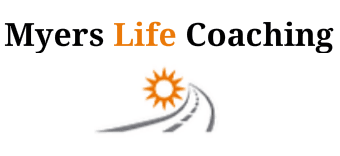Four Questions to Ask Yourself When Your Partner Faces Addiction
Four Questions to Ask Yourself When Your Partner Faces Addiction
Written by: Caleb Anderson
When we decide to get married, we agree to face whatever may come down the road together and to stand by one another through thick and thin. As you cruise down the road of love together with your partner, you will eventually come across a rough patch. Sometimes, this difficult period is the result of an addiction.
Addiction can put an immense amount of strain on any relationship. It’s difficult to watch the person you love become dangerously dependent on a substance. If you believe that your partner is showing signs of addiction, here a few questions you may have, and some solutions for how to best proceed.
- When is the Right Time to Intervene?
While facing an intervention can be hard for those suffering from addiction, actually building up the courage to confront a loved one can be just as difficult. In many cases, those watching their partner spiral into substance abuse are hesitant to address the problem outright. Confrontation marks an immediate change in the dynamics of the relationship, and it’s hard to say how your partner may react, or what may happen down the road from that point on.
Once you feel like it is finally time to confront your loved one, you need to work out an intervention plan to ensure that your partner fully understands the extent of their addiction. To host an intervention, you might need to bring other parties along, such as family members, to help ground your partner and drive your points home. The most important part of any intervention is a plan of where to go once everything is out in the open. You should craft your plan expecting a number of different outcomes, and what the next best step would be for each one.
- Is Treatment the Best Next Step?
The next logical step for many would be to seek professional help through an addiction treatment program. Before you host your intervention, you might want to seek out the best local options for treatment; that way, you have something to propose for your loved one. Presenting a number of options for your partner and letting them decide the best course of action could help them feel like they have a say in what happens next. It’s important to realize that you might also have to be a little firm, albeit patient, when suggesting your partner find professional help—especially if they are in denial about their addiction.
- How do We Heal Together?
Ideally, after you have confronted your partner about their problem and once they agree to seek help, you can begin the healing process. When it comes to addiction, no two marriages are exactly alike. In many cases, there is a lot of hurt and betrayal that underlies a marriage disrupted by addiction. Over the course of recovery, one partner may grow to resent or distrust the other. Shame can be a stubborn wedge that needs to be chipped away at for a marriage to resume as normal.
Any hurdles that arise during the course of addiction recovery can put a lot of pressure on both you and your partner. It’s important to approach every hurdle systematically, and most importantly, as a team. For example, if the addiction caused financial strain, it’s important to create a finance plan together that will help ease that burden. If you find it difficult to reestablish trust with your partner, it may be best to attend marriage counseling sessions together. Over time, as both partners show signs of dedication to the other, they can rise above the past problems of addiction and come out on the other side, maybe even stronger and closer than they were before.
- When is it Time to Separate?
Of course, not all marriages can survive the turbulence of addiction. Sometimes, the amount of lies and hurt is so much that it’s hard to fully recover. You may feel like you need to stick around to help your partner get back on their feet, but you also need to remember to make the best decision for you.
About The Author
After a bad car crash, I was prescribed opioids to help manage my ongoing pain, but instead, they took over my life.
I went from someone who rarely took aspirin to someone whose every thought revolved around how to get more pills. To say it put a strain on my marriage would be an understatement. I lied to my wife, stayed out late or never came home at all, and stole from her.
Ultimately, she saved my life. She arranged the intervention that got me into treatment. And today, I’m happy to say that after a lot of counseling our marriage is stronger than ever.
This is sort of my way of saying thank you to all those who helped me get into recovery–especially my wife.
Caleb Anderson
RecoveryHope.org | caleb@recoveryhope.org
1211 S MacArthur Blvd, Springfield, IL 62704







Leave a Reply
Want to join the discussion?Feel free to contribute!